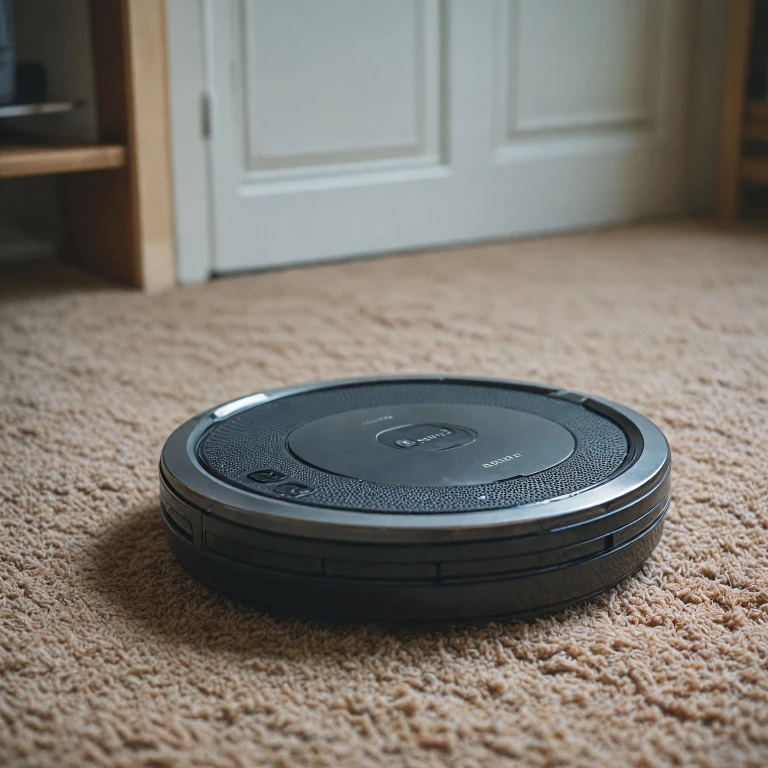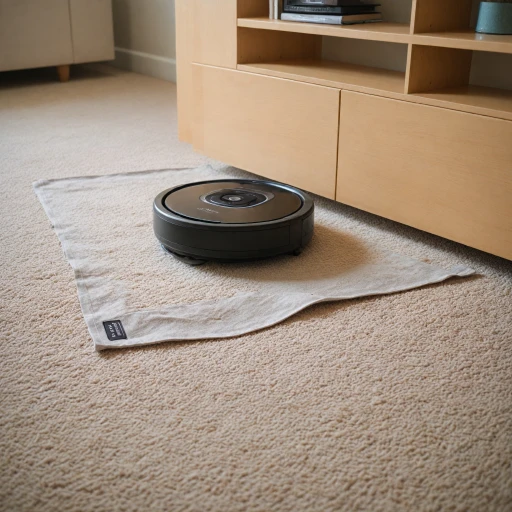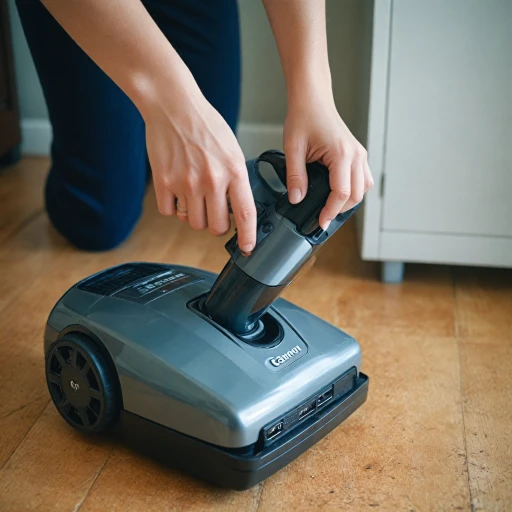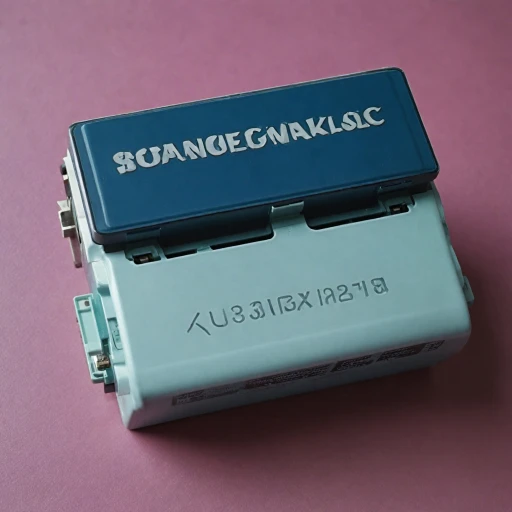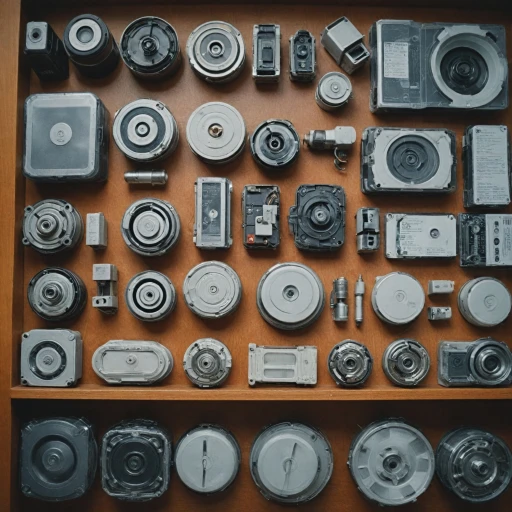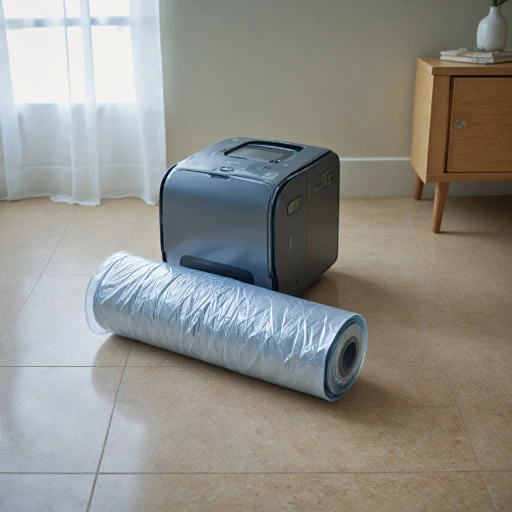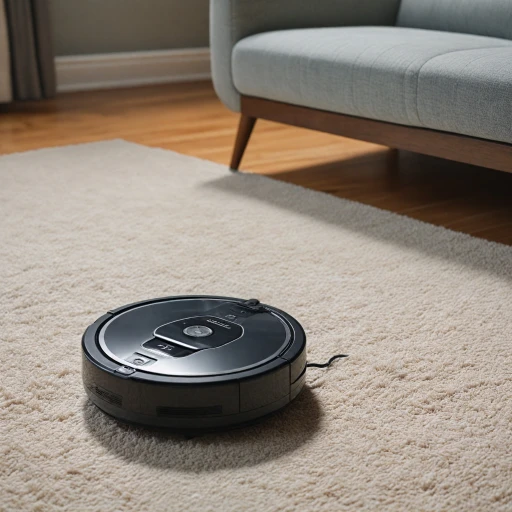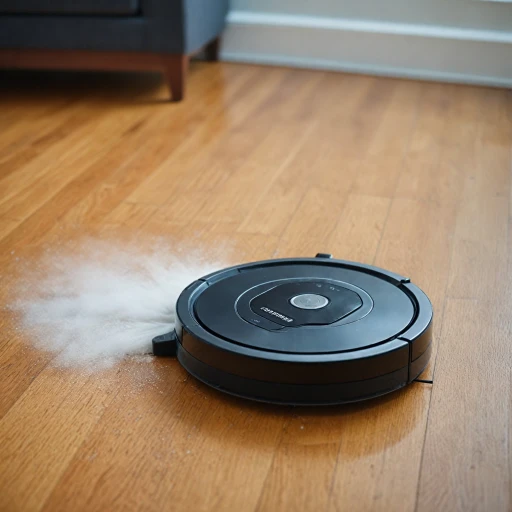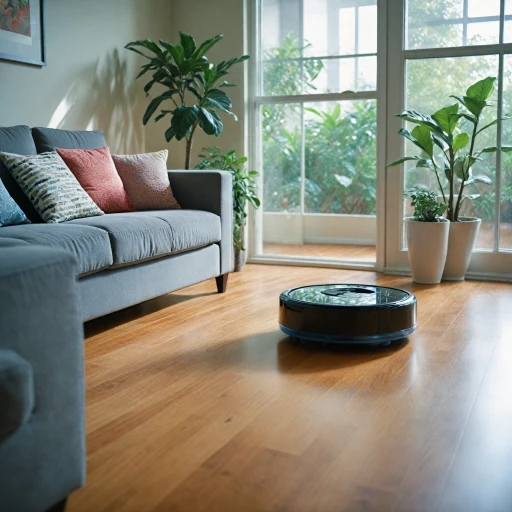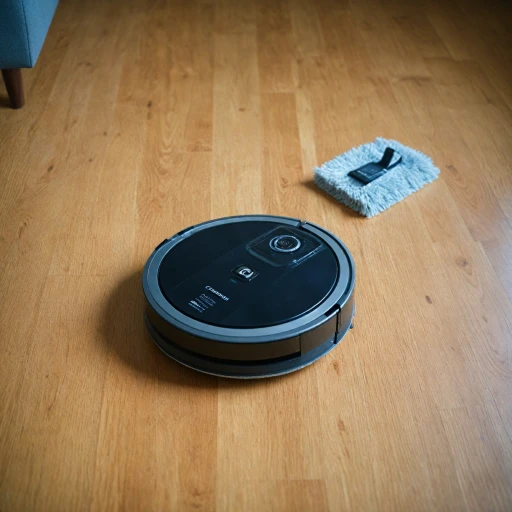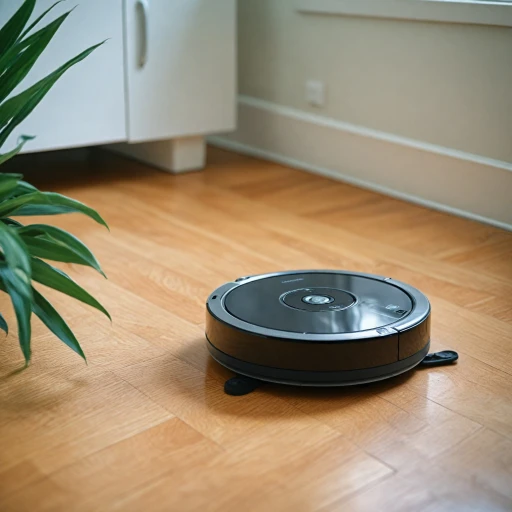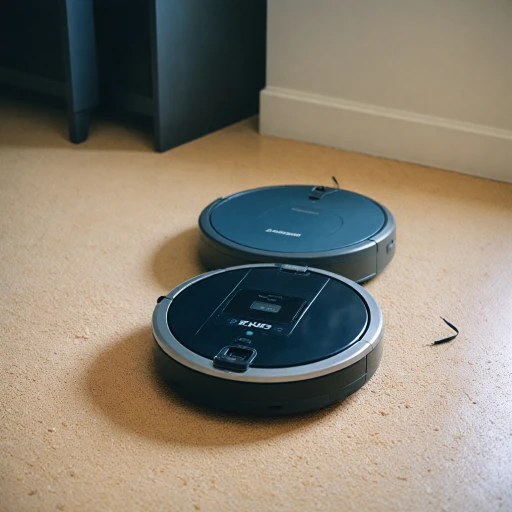
The Role of Vacuum Filters in Robot Vacuums
Unveiling the Critical Function of Vacuum Filters in Robot Vacuums
Robot vacuums have rapidly transformed from luxury items to practical necessities for many households. At the heart of these robotic cleaning systems is a component that often receives less attention than it deserves: the vacuum filter. These small yet mighty tools play a pivotal role in ensuring that your robot vacuums perform efficiently while maintaining optimal air quality within your home.
The primary function of a vacuum filter is to trap dirt, dust, and fine particles collected by the vacuum cleaner. As the system sucks in these particles, the filter ensures that only clean air is expelled back into the room, preventing the recirculation of potentially harmful dust and allergens. This is particularly crucial in homes where individuals may suffer from allergies or respiratory conditions, making the choice of vacuum filter all the more important.
In the current market, several types of filters like HEPA filters, air filters, and charcoal filters are available. Each serves a unique purpose and offers specific benefits, which will be covered in the next section. Understanding these unique attributes can make a significant difference in the effectiveness of your robot vacuum, whether you aim for superior air quality or better dust trapping.
Moreover, the efficiency of a filter not only affects cleaning quality but also contributes to the long-term sustainability of the vacuum itself. A well-maintained filter prevents damage to the vacuum's motor and ensures that the cleaning process is as efficient as possible, minimizing the need for frequent filter replacement and maintenance.
The cost-effectiveness of a robot vacuum can be directly related to the type of filter it uses. Generally, the initial price might vary, but investing in high-quality vacuum filters, such as HEPA filter or charcoal filter, can result in lower expenses over time by reducing the need for constant replacement. Additionally, newer models often come with features like free shipping or add cart options that make it easier to purchase the correct filters for your specific system.
Choosing the right set of vacuum filters can directly influence not only your home’s cleanliness but also the air quality of your living space. Not only does this enhance your home environment, but as several experts confirm, such longevity in product life also speaks to the effectiveness of understanding the core components of robot vacuums.
Types of Vacuum Filters and Their Benefits
Exploring the Varieties of Vacuum Filters
When considering the range of vacuum filters available for robot vacuums, it's important to understand that each type has specific benefits and purposes. Diving into the different filtration systems can help you identify the most suitable option for your cleaning needs.- HEPA Filters: Widely recognized for their efficiency, HEPA filters are designed to capture 99.97% of particles as small as 0.3 microns. This includes dust, fine dust, and allergens, making them an excellent choice for households with allergy sufferers. A HEPA filter's capacity to enhance air quality by trapping airborne pollutants makes it a valuable addition to any vacuum cleaner.
- Charcoal Filters: Known for their odor-neutralizing properties, charcoal filters are infused with granulated charcoal. These filters are particularly effective in homes with pets, as they help to eliminate unwanted smells while also filtering out dust and other particles. Their ability to improve air filtration without sacrificing performance is noteworthy.
- Air Filters: While not as powerful as HEPA filters, standard air filters are integral to maintaining the long-term efficiency of robot vacuums. These filters capture common household dust and debris, ensuring the vacuum system operates smoothly. Regular maintenance and filter replacement are necessary to preserve this function.
- Bags Filters: Central vacuums often rely on bags filters to contain captured dust and debris. Though these aren't common in robotic vacuums, they illustrate the breadth of filtering options available. Their use in central vacuum systems highlights the diversity in filtering technology.
How Vacuum Filters Affect Air Quality
Impact on Indoor Air Quality
When it comes to robot vacuums, the role of vacuum filters is pivotal in maintaining and improving indoor air quality. These filters, especially HEPA filters, are adept at capturing fine dust and microscopic particles. Designed to trap allergens, they ensure that the air expelled by the vacuum cleaner is significantly cleaner than it was before. Consider products equipped with advanced filtration systems. These systems often include multiple layers of filter media—typically a combination of HEPA media and charcoal filters. Each layer serves a unique purpose: HEPA filters efficiently capture dust and pollen, while granulated charcoal filters help mitigate odors. The combined efforts of these filters mean your indoor environment remains fresh and inviting, ideal for households sensitive to allergens. Moreover, the presence of an exhaust filter in your robot vacuum is crucial. It ensures that the air cycled back into your home doesn't carry the dust and debris collected. Thus, regularly scheduled vacuum filter replacement is indispensable, not just for the vacuum's optimal performance, but for maintaining superior air quality. When comparing the efficacy of different vacuums, it's essential to view product reviews focusing on their filtration capabilities. Comprehensive filtration, especially in central and backpack vacuum models, ensures a more thorough cleaning experience and peace of mind regarding air quality. To discover more about the components working alongside filters or if you're considering upgrading your current system, understanding the Shark vacuum battery might be insightful. This will ensure your robot cleaner runs efficiently without compromising on its ability to maintain a healthy indoor atmosphere.Maintenance Tips for Vacuum Filters
Effective Maintenance Practices for Your Vacuum Filters
Maintaining vacuum filters is crucial to ensure the optimal performance of your robot vacuum. Over time, filters can accumulate dust, fine particles, and other debris, which can hamper the system's efficacy and air quality in your home. To help you keep your vacuum cleaner running smoothly, here are some maintenance tips:- Regular Cleaning: Most vacuum filters, including HEPA and exhaust filters, require routine cleaning. Check the product manual to understand the recommended frequency for cleaning the filter set. A quick rinse under water can often suffice, but ensure it is completely dry before reinserting to avoid damage to the vacuum.
- Timely Replacement: Even the best filters need replacement eventually. Keep track of the filter replacement timeline suggested by the manufacturer. For instance, HEPA media filters might need to be replaced every six months, depending on usage frequency and dust accumulation.
- Watch for Clogs: One common issue with vacuum filters is clogging. If you notice a decrease in suction power or hear unusual sounds from your vacuum, it's worthwhile to check for a clogged filter. Gently remove any accumulated debris using a soft brush—a tool often included with your vacuum accessories.
- Use Compatible Vacuums Bags: Ensure that any vacuum bags or backpack replacements are compatible with your system. The right bags can substantially enhance the filtration process, capturing more dust and extending the life of your filters.
- Keep Spare Filters Handy: Consider having a pack of spare filters or a comprehensive filter set on hand for times when a quick swap is necessary. This is especially useful if you rely heavily on your vacuum cleaner for maintaining air quality.
Choosing the Right Vacuum Filter for Your Needs
Selecting the Most Suitable Filter for Your Vacuum Cleaner
Choosing the right vacuum filter for your robot vacuum is crucial to ensuring both the efficiency of your cleaning system and the longevity of the vacuum cleaner itself. With the diversity in filter options available on the market, it can be daunting to make the right decision. Here are some vital considerations to guide your choice:- Filter Type: Understanding different types of filters, like HEPA filters or air filters, can help you match them to your specific cleaning needs. For example, HEPA filters are excellent for capturing fine dust and allergens, making them ideal for households with pets or individuals with allergies.
- Product Specifications: Each vacuum model has its own filter size and specifications. Make sure the filter set and replacement packs are compatible with your vacuum cleaner model. Consulting your vacuum's user manual or the manufacturer's website can provide clarity on this.
- Filtration Needs: Consider what you need to filtrate. If you are concerned about air quality, HEPA filters or those with granulated charcoal are good choices. Meanwhile, a central vacuum system with robust exhaust filtration may suffice for general dust removal.
- Price and Value: Compare the price of different filters and consider both their lifespan and the frequency of replacement. Although free shipping and discounts might influence your decision, prioritize finding a filter that offers durability and effectiveness.
- Maintenance and Replacement: Investigate the ease of maintenance and filter replacement. Some filters are washable and reusable, which can be more economical in the long run, while others necessitate regular swapping, which could add to your cleaning tool's long-term costs.
Common Issues with Vacuum Filters and Solutions
Troubleshooting Your Robot Vacuum Filters
Encountering issues with your robot vacuum's filters can be frustrating, yet they're relatively common. Among the frequent challenges faced by users are poor filtration quality, clogged filters, and reduced suction power. Here's a guide to navigate these problems and improve your cleaning experience.- Diminished Filtration Quality: If you notice a decline in your vacuum cleaner's ability to filter fine dust, it may be due for a filter replacement. Over time, filters like HEPA and charcoal filters lose effectiveness, impacting dust and air filtration systems. A regular filter replacement schedule can preserve optimal performance.
- Clogged Filters: Filters can become clogged with debris, affecting the vacuum's efficiency. Regularly removing and cleaning your vacuum filters can prevent blockages. For a more thorough clean, some filters can be rinsed under water, though ensure they are completely dry before reinserting.
- Reduced Suction Power: A common issue users face is lowered suction capability. This might arise from a clogged exhaust filter or full vacuum bags. Ensure these components are clean and, if necessary, install a new filter set to restore performance.

